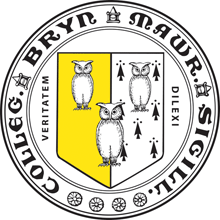
Talk: Secure Credentialing
Speaker: Hal Berghel, UNLV
Date: Friday, January 21, 2011, 3:00pm
Location: Park Science Building, Bryn Mawr College
We discuss several new methods for the creation of secure credentials, including some of those for which the speaker holds patents. These methods include those that work with conventional identification media (mag stripe cards, smart cards, RFID cards, etc.) as well as newer applications that use digital displays (e.g., on iPhones and PDAs). These methods will be presented in the context of a variety of business, government, law enforcement and military applications. Our methods integrate biometrics (fingerprint, iris scan, bone scan, capillary/palm scan, photographic images, etc.) to provide at least four points of authentication. Industry standard encryption (e.g., AES and Blowfish) is added in a variety of ways to provide security. The result is a self-validating credential that operates on a mobile platform with equipment that may be found in most office equipment retail stores. One of our systems, CardSleuth, will be demonstrated. Although CardSleuth takes advantage with elecrical power and network access, it requires neither for full functionality. The software runs on any Windows computer, PDA, phone, etc. for both the generation and recognition, as well as authentication and validation of IDs. The robustness of these methods are compared with recent government efforts such as RealID and the WHTI Pass Card.
Hal Berghel is currently Professor and Director of the School of Informatics at the University of Nevada, Las Vegas where he has previously served as Director of the School of Computer Science and Associate Dean of the College of Engineering. He is also the founding Director of both the Center for CyberSecurity Research, and the Identity Theft and Financial Fraud Research and Operations Center. His research interests are both catholic and eclectic, ranging from logic programming and expert systems, relational database design, algorithms for non-resolution based inferencing, approximate string matching, digital watermarking and steganography, and digital security (including both computer and network forensics), For the past decade he has applied his work in digital security to law enforcement, particularly with respect to digital crime, cyberterrorism, and information warfare. His research has been supported by both industry and government for over thirty years. His current in secure credentialling technology is funded by the Department of Justice. In addition to his academic positions, Berghel is also a popular columnist, author, frequent, talk show guest, inventor, and keynote speaker. For nearly fifteen years he wrote the popular Digital Village column for the Communications of the ACM.
Berghel is a Fellow of both the Institute for Electrical and Electronics Engineers and the Association for Computing Machinery, and serves both societies as a Distinguished Lecturer. He has received the ACM Outstanding Lecturer of the Year Award four times and was recognized for Lifetime Achievement in 2004. He has also received both the ACM Outstanding Contribution and Distinguished Service awards. He is also the founder and owner of Berghel.Net, a consultancy serving business and industry, and co-owner of BC Innovations Management, a startup company in IP and DRM.








